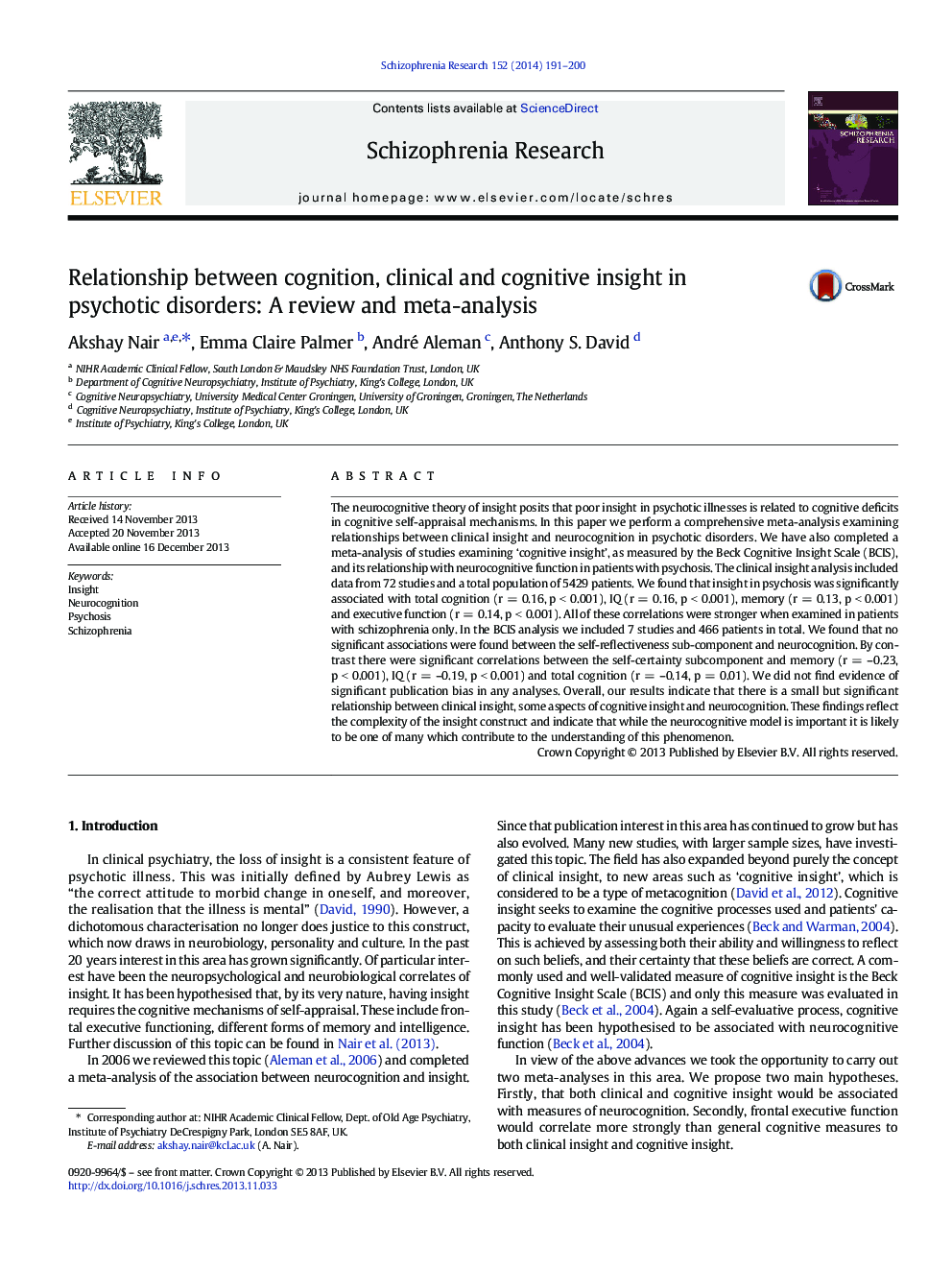| کد مقاله | کد نشریه | سال انتشار | مقاله انگلیسی | نسخه تمام متن |
|---|---|---|---|---|
| 10307805 | 548041 | 2014 | 10 صفحه PDF | دانلود رایگان |
عنوان انگلیسی مقاله ISI
Relationship between cognition, clinical and cognitive insight in psychotic disorders: A review and meta-analysis
ترجمه فارسی عنوان
رابطه بین شناختی، بینایی بالینی و شناختی در اختلالات روان پریشی: بررسی و متاآنالیز
دانلود مقاله + سفارش ترجمه
دانلود مقاله ISI انگلیسی
رایگان برای ایرانیان
کلمات کلیدی
بینش، بصیرت، درون بینی، شناخت عصبی، روانپریشی جنون جوانی،
موضوعات مرتبط
علوم زیستی و بیوفناوری
علم عصب شناسی
علوم اعصاب رفتاری
چکیده انگلیسی
The neurocognitive theory of insight posits that poor insight in psychotic illnesses is related to cognitive deficits in cognitive self-appraisal mechanisms. In this paper we perform a comprehensive meta-analysis examining relationships between clinical insight and neurocognition in psychotic disorders. We have also completed a meta-analysis of studies examining 'cognitive insight', as measured by the Beck Cognitive Insight Scale (BCIS), and its relationship with neurocognitive function in patients with psychosis. The clinical insight analysis included data from 72 studies and a total population of 5429 patients. We found that insight in psychosis was significantly associated with total cognition (r = 0.16, p < 0.001), IQ (r = 0.16, p < 0.001), memory (r = 0.13, p < 0.001) and executive function (r = 0.14, p < 0.001). All of these correlations were stronger when examined in patients with schizophrenia only. In the BCIS analysis we included 7 studies and 466 patients in total. We found that no significant associations were found between the self-reflectiveness sub-component and neurocognition. By contrast there were significant correlations between the self-certainty subcomponent and memory (r = -0.23, p < 0.001), IQ (r = -0.19, p < 0.001) and total cognition (r = -0.14, p = 0.01). We did not find evidence of significant publication bias in any analyses. Overall, our results indicate that there is a small but significant relationship between clinical insight, some aspects of cognitive insight and neurocognition. These findings reflect the complexity of the insight construct and indicate that while the neurocognitive model is important it is likely to be one of many which contribute to the understanding of this phenomenon.
ناشر
Database: Elsevier - ScienceDirect (ساینس دایرکت)
Journal: Schizophrenia Research - Volume 152, Issue 1, January 2014, Pages 191-200
Journal: Schizophrenia Research - Volume 152, Issue 1, January 2014, Pages 191-200
نویسندگان
Akshay Nair, Emma Claire Palmer, André Aleman, Anthony S. David,
